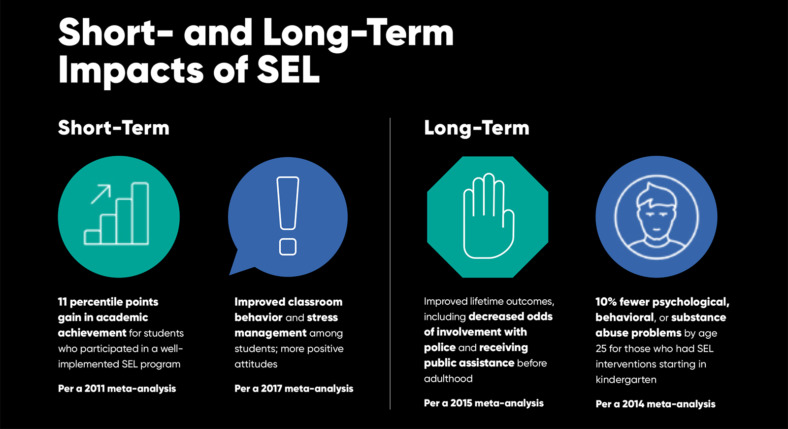
5 Reasons Why Social-Emotional Learning is Important for Students and Professionals
Social-emotional learning (SEL) is a process through which children and adults learn how to understand and manage their emotions, set and achieve positive goals, feel and show empathy for others, establish and maintain positive relationships, and make responsible decisions. SEL is important for both students and professionals, as it can help them develop important life skills and thrive in their personal and professional lives.
Here are five reasons why social-emotional learning is crucial:
- Improved Mental Health: Social-emotional learning can help improve mental health outcomes for both students and professionals. By developing the skills to manage their emotions, they are better equipped to cope with stress, anxiety, and depression.
- Better Relationships: Social-emotional learning helps individuals establish and maintain positive relationships with others. By developing empathy and understanding, they can improve communication and build stronger connections with others.
- Increased Academic Success: Students who engage in social-emotional learning often experience increased academic success. By learning how to manage their emotions and set positive goals, they are better equipped to focus on learning and achieve academic success.
- Career Advancement: Professionals who engage in social-emotional learning can develop important leadership and communication skills. By learning how to manage their emotions and establish positive relationships with colleagues, they can advance their careers and achieve success in their professional lives.
- Positive Impact on Society: Social-emotional learning can have a positive impact on society as a whole. By learning how to establish positive relationships, manage their emotions, and make responsible decisions, individuals can become better citizens and contribute positively to their communities.
In conclusion, social-emotional learning is an essential process for both students and professionals. By developing important life skills such as emotional management, empathy, and responsible decision-making, individuals can improve their mental health, build positive relationships, achieve academic and professional success, and contribute positively to society.